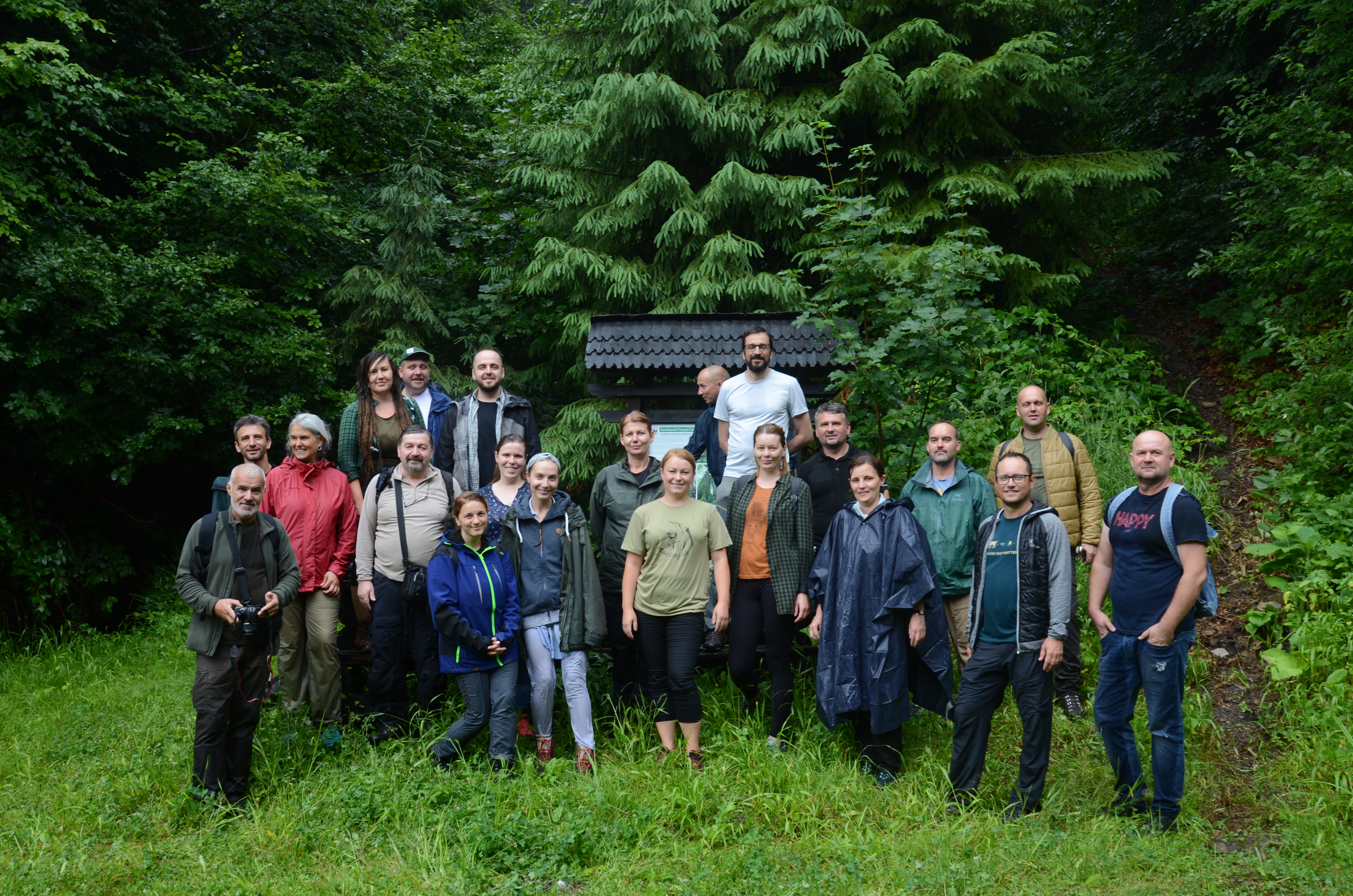SaveGREEN - participated in Final conference of “Open Boarders for Wildlife in the Carpathians” project
19-07-2022
From 4 to 7 July 2022, representatives of the SaveGREEN project participated in the Final conference of the “Open Borders for Wildlife in the Carpathians” project (OBWIC), held in Baia Mare, Romania. In the course of the conference, WWF Romania, a project partner of SaveGREEN, presented their newly developed management measures for ecological corridors to the authorities present.
The conference, which took place both in Baia Mare and within the Strâmbu Băiuț Forest District, was attended by experts from a large range of countries, including Romania, Slovakia, Hungary, Ukraine, Austria and Bolivia, allowing for a rich exchange of experiences on the topic of ecological connectivity and the tackling of habitat fragmentation and impediments to wildlife migration. The topic being right up the alley of SaveGREEN, Hildegard Meyer, participating on behalf of the project consortium, was able to share numerous insights gained over the past 2 years of project implementation.
The OBWIC project is a year older than SaveGREEN and started on October 1, 2019 with funding from the Hungary – Slovakia - Romania - Ukraine ENI Cross-Border Cooperation Programme 2014-2020. Over its 34-month runtime, the project partners WWF Romania - Maramureș branch, the RakhivEcoTur Organization (Ukraine), Aggtelek National Park (Hungary) and SOS BirdLife (Slovakia) have worked to contribute to the protection of biodiversity in the Carpathian Ecoregion by improving connectivity between habitats and maintaining functions and services provided ecosystems.
The overall aim of the final conference was to provide an effective platform for the exchange of information in the field of sustainable management of large carnivores and the identification and protection of ecological corridors in the Carpathians and to summarize the results and contributions of the OBWIC project to these fields.
Like the SaveGREEN consortium, OBWIC are convinced of the fact that ecological connectivity is an essential condition for the survival of many species, both animals and plants, in the Danube-Carpathian region and beyond. The ever-increasing fragmentation of the landscape places significant limits on the movement of wildlife species and thus threatens their ability to procreate, find food and shelter, and ultimately their very existence. The main means by which to counteract these developments is through the designation and creation of ecological networks, whose permeability for migrating wildlife is safeguarded or restored. In Maramures county alone, the OBWIC project has identified approximately 7000 hectares of valuable land embedded in a network of ecological corridors linking Romania, Ukraine, Slovakia and Hungary. These efforts directly tie into the on-going work of SaveGREEN in its 8 pilot areas, where the project teams seek to analyse existing and possible future bottleneck situations in ecological corridors and suggest measures for their improvement.

Copyright WWF Romania
In the course of the conference, the participants were invited to visit a forest glade managed by OS Strambu Baiut where restoration and improvement works were carried out to improve feeding possibilities for wildlife within the area of an ecological corridor. The conference participants were able to observe first-hand how such measures directly contribute to improving the functionality of ecological corridors by strengthening the mosaic of habitats that serve as shelter for wildlife species and provide diversified natural food sources. OBWIC placed a specific focus on large carnivores, which they designated as umbrella species (i.e. meeting their needs means addressing the needs of many other species as well) and working on reducing wildlife-human conflict. The approach of SaveGREEN differs somewhat, as the project is also active in countries such as Austria, where large carnivores are far less prevalent. For this reason, the SaveGREEN consortium decided to also include other common species such as wild boar, red deer and roe deer as indicator species.
The SaveGREEN consortium is grateful for the opportunity to attend this meeting which provided numerous fruitful discussions. Most notably, it underlined once more the importance of continuous collaboration with the authorities and other stakeholders as the only sustainable means by which to ensure the long-term and effective protection of ecological corridors and biodiversity in general.
For more information please contact:
Alexandra Pușcaș - Project Manager, apuscas@wwf.ro
Miradona Krizbai - WWF-Romania Communication Specialist, mkrizbai@wwf.ro
